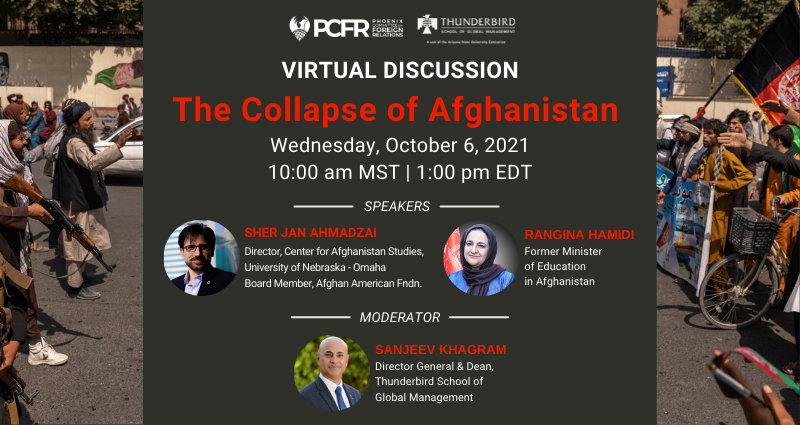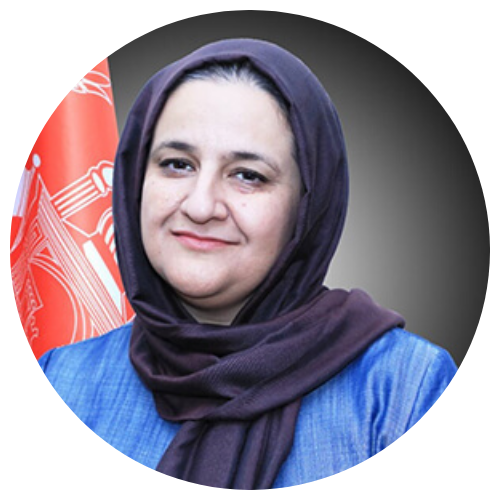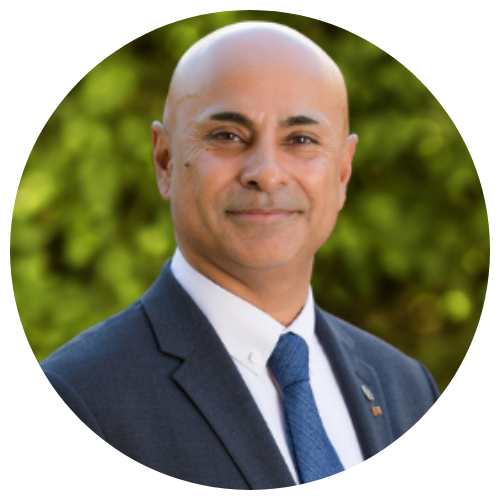
The Collapse of Afghanistan
Just twenty years ago, Afghanistan was ruled by an authoritarian, theocratic system of governance. In 2001, President Hamid Karzai was sworn in as the leader of the interim government in Afghanistan, supported by the United States and the international community, marking the end of Taliban rule. The recent and sudden withdrawal of the U.S. forces from Afghanistan has created the conditions for the same authoritarian actors to rule once more. This change will have lasting consequences impacting not only the people of Afghanistan, but the entirety of the region, and the world. Now, we must ask ourselves: how and why did Afghanistan collapse, and what can be salvaged from all the progress that has been made in the past twenty years. Sher Jan Ahmadzai, Director of the Center for Afghanistan Studies at the University of Nebraska – Omaha and Rangina Hamidi, former Afghan Minister of Education, join Phoenix Committee on Foreign Relations and Thunderbird School of Global Management for a timely discussion on Afghanistan’s collapse and what the future might look like under Taliban rule. Dean Sanjeev Khagram of Thunderbird School of Global Management will moderate this important panel.
Registration
FREE for PCFR Members
$10 for Non-Members
Schedule
Wednesday, October 6, 2021
10 - 11 AM MST
1 - 2 PM EDT
Venue
Zoom Meeting
The link for this webinar will be included in your registration confirmation email.
Speakers
Sher Jan Ahmadzai
Director, Center for Afghanistan Studies
University of Nebraska at Omaha
Board Member, Afghan American Foundation

Sher Jan Ahmadzai is the Director of the Center for Afghanistan Studies at the University of Nebraska – Omaha. He worked in the Afghan government for many years prior to moving to the United States. First, he serve at the Afghanistan Assistance Coordination Agency (AACA) which was run, at that time, by the current president of Afghanistan, Dr. Mohammad Ashraf Ghani. He later served in the Executive Office of President Hamid Karza, responsible for managing President Karzai’s day-to-day schedule and maintaining relations with a myriad leaders across Afghanistan and beyond. As Director for the Center for Afghanistan Studies, Mr. Ahmadzai teaches about the geopolitics of Central Asia and South Asia (CASA), oversees the Center’s academic, programmatic and administrative affairs, and leads higher education academic capacity building projects and initiatives in CASA, especially in Afghanistan, Pakistan, Uzbekistan, Kazakhstan, and India.
Mr. Ahmadzai has also presented on the topics of, culture, governance, tribal and political dynamics of Afghanistan (and Pakistan). He is a regular contributor and commentator for many national and international media outlets such as Voice of America (VOA), BBC, CNN, and more, on various issues related to the U.S. foreign policy in the CASA region, Afghanistan and Pakistan, tribal dynamics, security and terrorism, and the Taliban in South Asia. He has also participated in many rounds of U.S-Russian Track-II talks on counterterrorism, Afghanistan and regional security.
He co-authored Transboundary Water Resources in Afghanistan, a book focused on the hydro-politics of the region and the socio-political impacts of constraints on water security – particularly how water diplomacy will become a source of either cooperation or conflict in the region. Mr. Ahmadzai also assisted studies for the U.S. Agency for International Development (USAID), and has worked with Chattam House (The Royal Institute of International Affairs) on a project for the United Nations Security Council on the role that climate represents in achieving sustaining peace in Afghanistan.
Mr. Ahmadzai holds a Bachelor’s Degree in International Studies and a Master’s in Public Administration with a concentration in Public Policy.
Rangina Hamidi
Former Minister of Education, Afghanistan

Rangina Hamidi was born in Kandahar, Afghanistan. In 1981, she emigrated to Pakistan and then to the USA with her family. She holds a bachelor’s degree from the University of Virginia in Religious Studies and Women & Gender. Rangina is married and has one daughter.
Ms. Hamidi returned to Afghanistan in 2003 and took up residence in Kandahar. For two decades, Ms. Hamidi worked tirelessly to better the lives of Afghan citizens through development projects, advocacy, and, most importantly, education. Examples of Ms. Hamidi's accomplishments include the establishment of a full value-chain model of an all women's social enterprise in Kandahar whose products have reached Europe, the Middle East, Americas as well as other parts of the world. In this endeavor, Ms. Hamidi designed and implemented a holistic and full-environment approach to bring value to Afghan women at each part of the value chain.
Ms. Hamidi successfully led the Mezan International School to integrate and implement a world-class and internationally accredited curriculum with a solid foundation of Islamic education, Afghan history, Afghan values, and multi-lingual education. Most recently, Ms. Hamidi was Minister of Education.
Ms. Hamidi is well versed in child development, educational psychology, educational management, Islamic pedagogy, curriculum, business administration, development in conflict-affected countries, and gender issues from an Islamic perspective.
Ms. Hamidi has spoken about Afghanistan in numerous national and international forums that include universities, schools, conferences, and other special events.
She has been recognized internationally for her work with women. She was selected as one of 18 finalists for the CNN 2007 Hero Award and chosen as a "Personality of the Week" by Radio Free Europe. She has contributed to numerous publications and radio programs, including TIMES Asia Magazine, The Globe and Mail, Der Spiegel, Business Week, The Guardian, The Telegraph, NPR, BBC, and Voice of America. Her latest publication is a book that she has co-authored entitled “Embroidering within Boundaries: Afghan Women Creating a Future."
Ms. Hamidi serves on the advisory boards of Open Society Afghanistan (OSA), Afghan Women Chamber of Commerce & Industries (AWCCI), Medica Afghanistan (MA), the Afghanistan Institute for Civil Society (AICS) and is a council member of the US-Afghan Women’s Council.
Moderator
Sanjeev Khagram
Director General & Dean, Thunderbird School of Global Management

Dr. Sanjeev Khagram is director general and dean of Thunderbird School of Global Management, ASU Foundation Professor of Global Leadership, and a member of ASU's Global Institute of Sustainability's board of directors. He is a world-renowned expert in global leadership, the international political economy, sustainable development, and the data revolution. He has worked extensively with global start-ups, corporations, governments, civil society groups, nonprofit organizations, cross-sectoral action networks, public-private partnerships, foundations, professional associations, and universities worldwide.
Dr. Khagram holds a bachelor’s degree in Development Studies and Engineering, and a master’s degree and doctorate in Political Economy, all from Stanford University.
